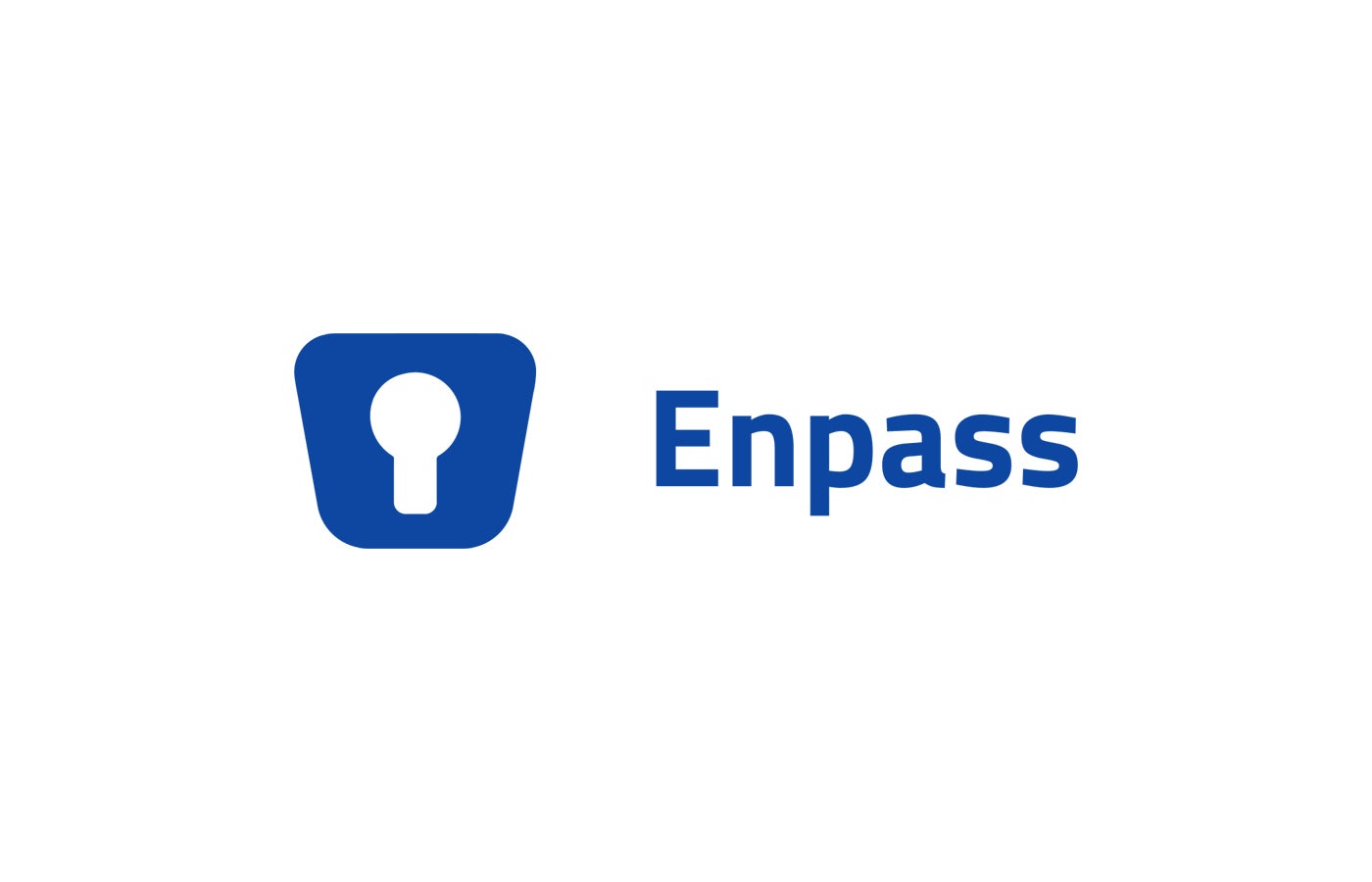Enpass fast factsOur rating: 4.0 stars out of 5 Pricing: Starts at $1.99 Key features
|
Enpass is an offline password manager that lets you store your data locally or on a third-party cloud service like Google Drive or Dropbox. This means you won’t have to worry about your data possibly being leaked, especially since Enpass doesn’t store user data on their servers.
While password managers that use their own servers may be more convenient, Enpass’ user-centric approach to password management helps it stand out from the competition.
Is Enpass free?
Yes, Enpass has a free version for desktop users. Windows, macOS and Linux users can access an Enpass lite subscription for free and store passwords in an unlimited number of vaults. With the free version, you won’t receive breach alerts and identification of accounts with 2FA support.
In addition, the free plan’s mobile version only allows users to store a maximum of 25 passwords. This means that users who plan to sync their passwords from the free desktop version to their phone will likely reach the 25-password limit quickly.
I commend Enpass for giving us a free version of their desktop application, as opposed to a time-limited free trial. However, the limited password storage on the mobile version hinders me from recommending it as the best free solution long term.
When it comes to free password managers, I still stand by my recommendation that Bitwarden has one of the most complete free versions available. It provides unlimited password storage on an unlimited number of devices.
Enpass Pricing
Enpass has two subscription tiers: Personal & Family and Business.
Enpass Personal & Family
Among its consumer plans, the Individual subscription is the best bang-for-value choice at $1.99. Enpass’ starting subscription is more affordable than 1Password’s Individual plan at $2.99 and Dashlane’s Premium option at $3.33. With Enpass Individual, you get security alerts for website breaches and the ability to identify accounts with two-factor authentication.
Price-wise, Enpass’ Family Plan falls in the middle compared to other password managers. At $2.99 per month, you can protect up to six members, which would have made it one of the most affordable Family plan prices on the market. However, that price tag increases to $3.99 after the first year—which is unfortunate as it diminishes the overall value proposition of the plan.
| Personal & Family | ||
|---|---|---|
| Individual | Family | One-Time Plan |
| $1.99 per month | $2.99 per month, for first 12 months ($3.99 per month afterwards) | $99.99 |
|
|
|
At $3.99 for the second year, Enpass’ Family plan for six family members is still a decent price point compared to Roboform’s $3.98 Family and 1Password’s $4.99 Families subscription—which both only cover five family members. For users who want the most out of one Family subscription, I still recommend Dashlane’s Friends $ Family offering at $4.99 that covers up to 10 members with one subscription.
Enpass offers a unique one-time plan at $99.99 for a personal lifetime license. It comes with the same functionality as other Enpass subscriptions, just without the trouble of monthly payments. I only suggest choosing this more expensive option if you’re a longtime Enpass user and you like the convenience of a lifetime license.
Enpass Business
Enpass’ Business plans offer good value as well. I particularly like Enpass Starter, which covers 10 users for less than $1. This is pretty good considering how Dashlane also covers 10 seats with their Professional Starter plan, but for $20 or around $2 per user.
If you require more users, Enpass Standard is a good option, as it nets you all of the Starter features at a reasonable $2.99 per user, per month. Other options, like Keeper, have their comparable Business plan at $3.75 per user, per month.
If you’re part of a larger company, Enpass Enterprise comes in at $3.99 per user, per month. You receive more features with this plan, such as advanced corporate policy enforcement, automatic user provisioning and a more extensive Enpass Hub for management.
| Business | ||
|---|---|---|
| Starter | Standard | Enterprise |
| $9.99 per month | $2.99 per user, per month | $3.99 per user, per month |
|
|
|
Enpass provides a 14-day free trial for its Standard and Starter plans. I highly suggest going for this option first, as it lets you test drive Enpass’ premium subscription without paying for an initial fee.
Is Enpass safe?
Yes, Enpass is a safe password manager to use in 2024. It utilizes 256-bit AES encryption to encrypt user data, which is widely recognized as the gold standard encryption algorithm in the industry.
What makes Enpass’ security unique is that it doesn’t rely on its own servers to store user data. Instead, Enpass allows you to sync your data on your preferred cloud storage provider, like iCloud, Google Drive and OneDrive, to name a few. This removes concerns of hackers illegally stealing your data from Enpass data centers or servers since all your encrypted passwords are stored in your cloud storage service of choice.
Enpass has also shown commitment to independent security testing, with its most recent audit being conducted in May 2023 by Cure 53 on its Enpass Hub dashboard. While audits aren’t the end-all, be-all of security, it tells me that Enpass isn’t afraid of being scrutinized and is genuinely dedicated to offering quality services to its customers.
Key features of Enpass
While it’s not the most loaded password manager, Enpass comes with three key features that can provide tangible benefits.
Offline and cloud storage compatibility
Unlike other password managers, Enpass doesn’t store user data on its own servers or cloud. Rather, it allows users to store their data either locally or on their preferred cloud storage service. This means you won’t have to worry about data breaches possibly affecting Enpass data centers, since Enpass won’t have access to it in the first place.
Figure A
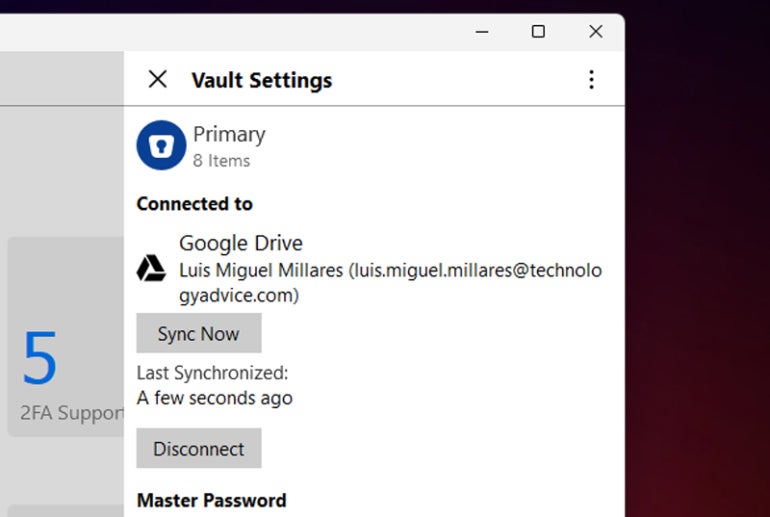
While we can argue that this is less convenient than having the company itself handle storing your data, you do get the peace of mind of having more control of where it is. This is perfect for users who already have a secure local data solution in place or are more comfortable storing their encrypted data in an existing cloud storage account.
Website Breach monitoring
Enpass’ breach monitoring tool alerts you whenever any saved websites become compromised. Once you get an alert, Enpass prompts you to immediately change passwords for these accounts to prevent further harm.
Figure B
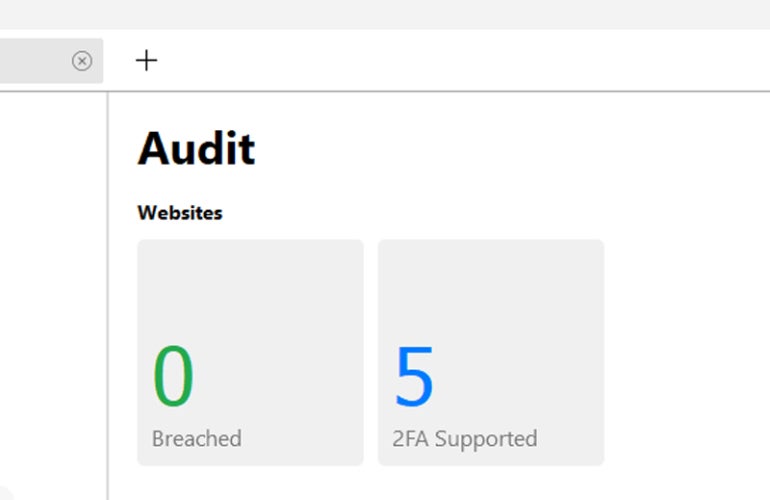
At a time where data breaches have become increasingly common, I personally find any data breach tool an essential part of password management in 2024. I thankfully didn’t have any breached data among the accounts I added on Enpass (Figure B).
For those interested in what an alert would look like, Enpass has a sample on their website. Each alert provides a short report (Figure C) that shows you the details of the breached website, date of breach and the type of data compromised.
Figure C
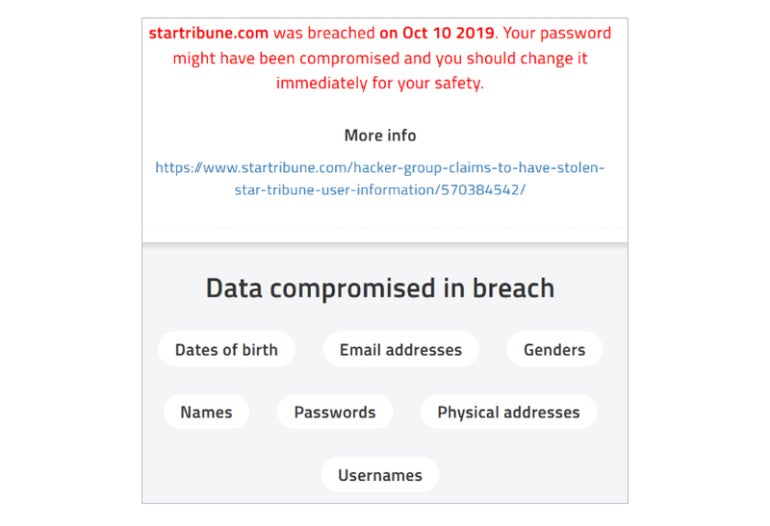
Password health
Enpass has a password health dashboard that provides a brief overview on the overall strength of your stored passwords. It lists passwords that are either compromised, identical, weak or expired.
Figure D
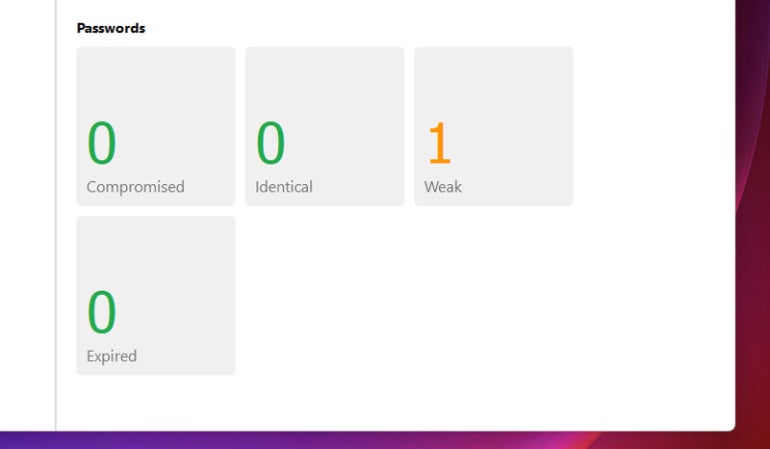
During my testing, Enpass flagged one of my accounts that had a relatively weak password. I like that when I clicked on the “Weak” passwords tab, it brought me to the password and provided the URL to the website and account itself.
Figure E
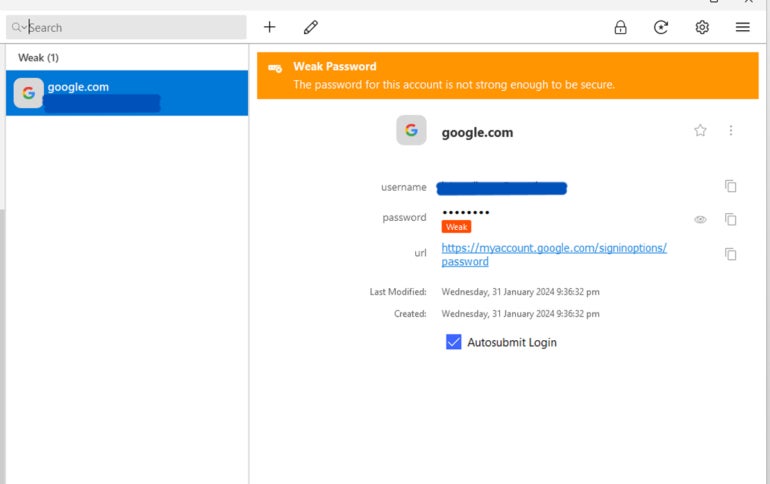
I envision this to be especially useful for people who have accounts with passwords that may not be considered “secure” by today’s standards.
Enpass authentication and security options
Enpass doesn’t have a lot of the conventional multi factor authentication (MFA) options. This is because it lets users decide which cloud storage service they want to store their data in instead of storing them on their own data servers.
With this comes a double-edged sword: you have the flexibility to choose where your data is, but you also have to make sure that your cloud service of choice has MFA. Fortunately, Enpass’ supported services, like OneDrive, Google Drive and Dropbox, enforce second factors like biometrics and one-time codes.
However, if you’re set on using popular MFA options like Microsoft Authenticator, Google Authenticator, YubiKey or Authy, you will have to look elsewhere. Bitwarden and NordPass are two password managers that have more choices in terms of MFA.
You can use Keyfiles in Enpass, which is an additional file you can store on your computer that can serve as a second factor to access your vault.
In terms of security options, Enpass offers a decent serving. It has auto-lock options that close your vault after certain actions, automatic clipboard erasure that wipes copied items at set times and biometrics or pin logins for quick access.
I find it unfortunate that Enpass doesn’t have an Emergency Access feature, which lets you designate contacts who can access your vault during emergencies. I think this is a crucial quality of life feature that will be sorely missed on the off chance you’re in an emergency. If this is important to you, both Keeper and Bitwarden’s Emergency Access features are easy to set up and navigate.
Enpass interface and performance
Enpass has a very simple and minimalist user interface (UI). The main dashboard is divided into different categories for your credentials, such as logins, credit cards and passwords.
Figure F
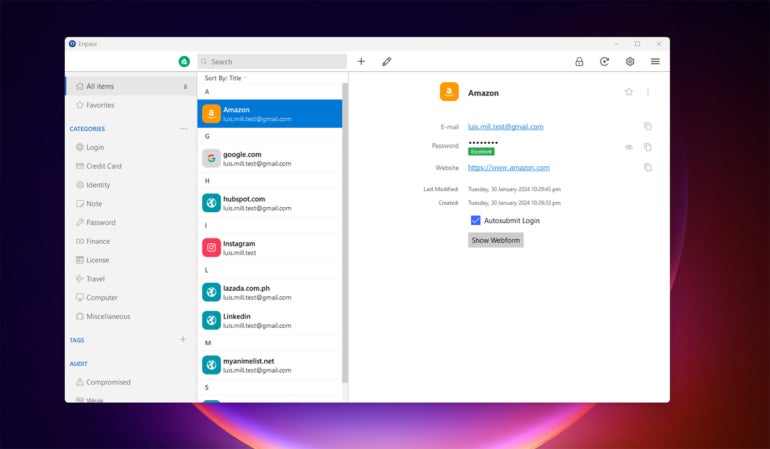
You also have tabs for Enpass’ audit features, which includes its data breach monitor and password health section.
I had zero trouble navigating the Enpass UI, as everything was more or less laid out where I expected them to be.
Performance-wise, Enpass’ password capture and replay worked without a hitch. I didn’t encounter any issues with its autofill capabilities, as it successfully detected the appropriate logins for the different websites I tested it with. Take note that you do need Enpass’ browser extension to fully take advantage of its autofill features.
Figure G
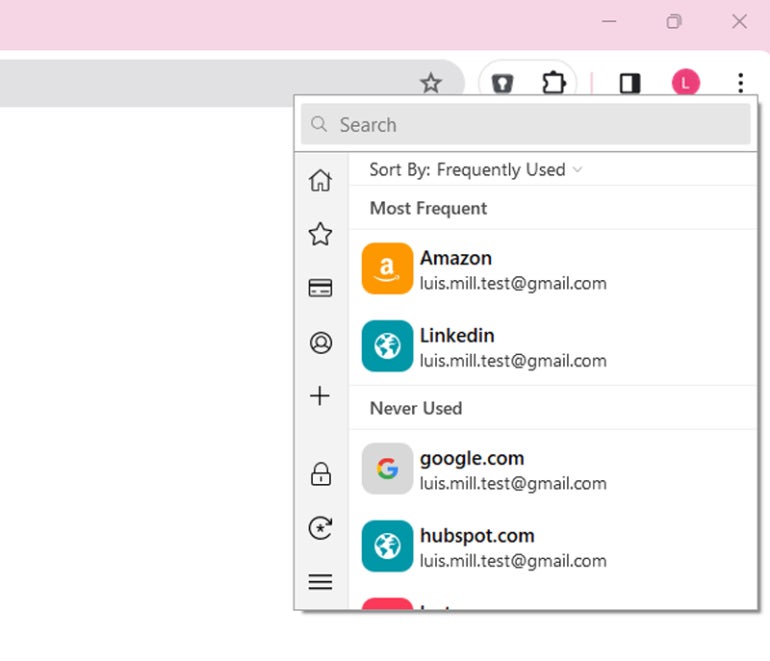
I would like to mention that less tech-savvy users may find Enpass’ cloud service-based system a bit overwhelming. Setting up and syncing your Enpass data with a separate cloud service is an additional step compared to other password managers that already have their own data servers.
So if you want a set-and-forget type of password manager, options like 1Password and NordPass may be better suited for you and your organization.
Enpass mobile app
Enpass has a mobile app for both Android and iOS. I installed Enpass on my Google Pixel 6 and found it to be a mostly one-to-one experience with the desktop application. It has a simple but intuitive interface with the same features you find in the full app.
Figure H
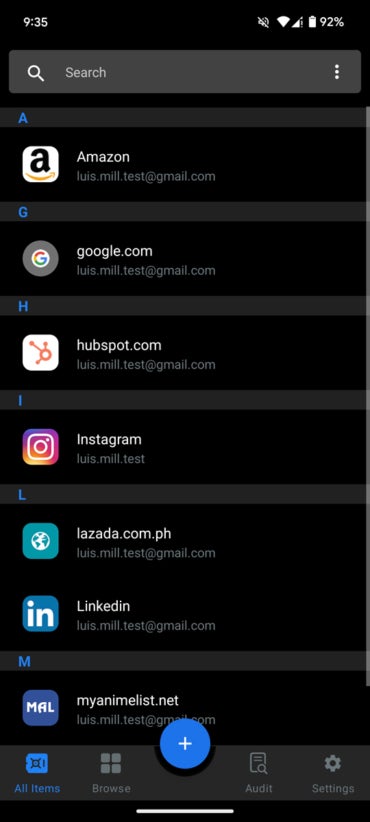
During my testing, I really enjoyed how seamlessly Enpass integrated my phone’s fingerprint sensor as a way to access my vault instead of through my master password. I also really liked how the app blacks out screenshots by default—an underrated security feature that can save your passwords from being stolen via your phone.
Keep in mind that if you use the free version, you will only get a maximum of 25 storable passwords on the Enpass mobile app.
Enpass Pros
- Affordable pricing across the board.
- Offline password manager.
- AES-256 encryption.
- Independently audited.
- Lets you choose where to store your data.
- Cloud storage service integration.
- Solid mobile app.
Enpass Cons
- Lacks popular multi factor authentication options.
- Cloud service setup requires extra steps.
- Free mobile version only allows 25 passwords.
Enpass alternatives
If you find after review that Enpass isn’t right for you or your business, I’ve listed three alternatives that may be better options instead.

Bitwarden
If you’re looking for another solid and fully free password manager, I recommend Bitwarden. Bitwarden not only offers unlimited password storage for free, but it also lets you access their service on unlimited devices without a subscription. If you decide to pay for their premium plan, you also get popular two-step MFA options like YubiKey, FIDO2 WebAuthn and Duo.
In our full review, Bitwarden received 4.3 stars out of 5.
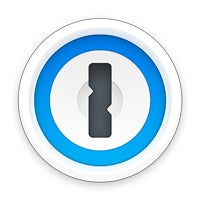
1Password
1Password is an all-around password manager that offers top-notch security and an easy-to-use interface. While it doesn’t have a free version, it comes with useful premium features such as a built-in travel mode, data breach scanning and Fastmail integration. Its app design across multiple platforms is also one of the best in the market.
In our full review, 1Password received 4.3 stars out of 5.

NordPass
If security is your top priority, check out NordPass. NordPass utilizes XChaCha20, a newer encryption algorithm that’s more modern than the industry standard AES-256. NordPass also operates on a zero-knowledge structure, which means that only the end-user has access to their data. It’s also worth noting that NordPass was created by Nord Security—one of the leading security providers in the industry today.
In our full review, NordPass received 4.6 stars out of 5.
Is Enpass worth it?
With its unique, user-centered approach to password management, Enpass is a great option for those looking to use a high quality offline password manager.
Enpass is best for users who don’t trust third-party providers to handle their data and want to take password storage into their own hands. It’s also perfect for businesses that already have their own local data solution in place.
Given the additional steps needed to set up and sync user data with a third-party cloud service, Enpass probably isn’t the best pick for ease of use. Despite this, Enpass’ affordable plans and strong AES-256 encryption make it a decent option to consider against other password managers.
Review Methodology
My review of Enpass involved a detailed analysis of its security features and real-world performance. I used Enpass on my personal Windows laptop and my Google Pixel 6 via their 14-day free trial for its Business Standard plan.
I rated Enpass on everything from its password management features to its ease of use based on an internal algorithm to get a rating of 4.0 out of 5 stars. The scoring was based both on Enpass on its own and in relation to other password managers.
